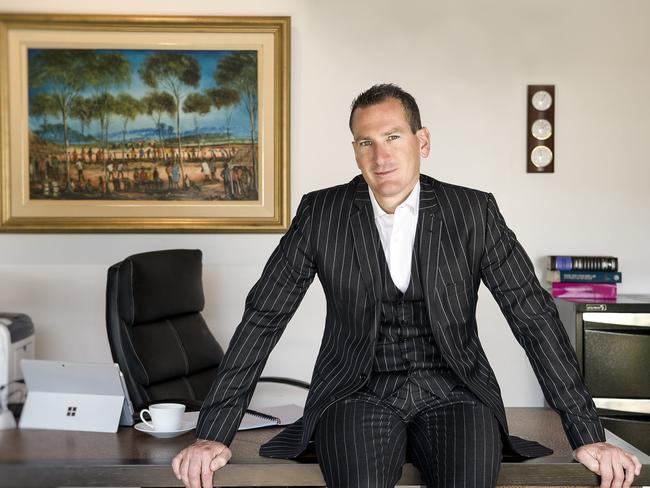New court ruling puts business owners into jeopardy over Facebook posts
A new court ruling has exposed businesses that use Facebook pages to promote their products and services to potential defamation suits.
Any business with a Facebook page is now at risk of being sued for defamation following a landmark court ruling, legal experts say.
And leading media industry figures argue the NSW Supreme Court decision threatens to stifle public debate while also exposing how behind the times Australia is.
Lawyer and privacy advocate Travis Schultz said this weeks’ judgment opened up the potential for a new wave of mercenary lawsuits.
Many Australian businesses with Facebook pages were likely to shut down public conversations about their products and services if the ruling was upheld, Mr Schultz warned, as they would have “no option” but to investigate strong content filters or remove comments from their Facebook posts “altogether” to remove the risk of lawsuits.

And litigants could now seek out companies “seen as having deeper pockets than the person responsible for (a Facebook) post in the first place,” he warned, in order to win the biggest payout.
“The precedent set by this recent decision is of grave concern to any business which operates a Facebook page to interact with the public,” he said.
“At least until the dust settles, or any appeal is heard and determined, there will justifiably be a degree of nervousness on the part of any business which permits the public to make comments on its Facebook page.”
But Swinburne University social media major director Dr Belinda Barnet said the ruling failed to recognise that Facebook did not allow businesses or media organisations to simply turn off public comments on current or past posts.
That could see some question whether they should remain on the social network.
“With Facebook, you don’t have the ability to pull the plug if the comments on a topic get too heated or dangerous,” she said.

“You can block individual people, but you can’t turn comments off entirely, which means you would be maintaining your entire archive of Facebook posts.
“I don’t think it’s particularly fair. This sets a precedent where news outlets can be blamed for defamatory comments that have passed under the radar on an old piece when they can’t be switched off.”
Senior media company executives said the court’s judgment could stop important stories from being posted to social media platforms.
In a preliminary decision this week, Justice Stephen Rothman found media companies had “the capacity effectively to block a comment” by hiding remarks containing any commonly used words, then moderating and unblocking acceptable comments.
He was considering former Northern Territory youth detainee Dylan Voller’s bid to sue three media organisations for defamation over comments on Facebook posts on the pages of The Sydney Morning Herald, The Australian, the Centralian Advocate, Sky News Australia and The Bolt Report.

That the media companies had no actual knowledge of the comment was deemed irrelevant.
One publisher, speaking on the condition of anonymity, said Facebook was a modern-day town square where issues could be discussed but that was now at risk.
Using the recent debate surrounding the views of Israel Folau, the publisher said “there is no way you would have the resources to vet every comment.
“You can’t even see the comments before they go out.”
A leading figure at another major publisher, who also requested anonymity, said the decision “only stifles debate.
“Nowadays that is one of the main outlets through which people receive their news.”
However, it’s understood some companies are considering whether to stop posting stories to Facebook in the wake of the decision.
Commenting for the first time on the ruling, Network 10 said “it highlights the need to update our defamation laws which are significantly out of step with the pace of technology, and how other countries are dealing with liability for online content.


